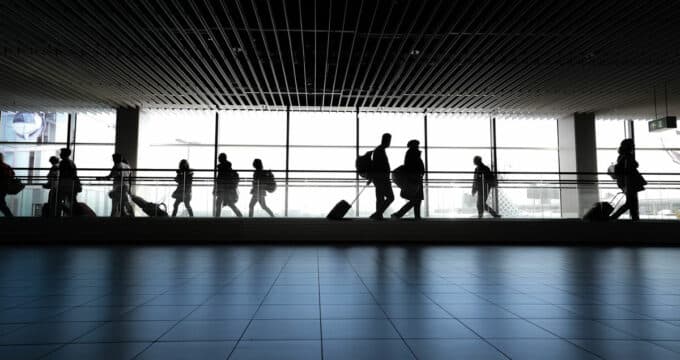Political unrest in Thailand appears to boost interest in education abroad
The recent political upheaval in Thailand has made headlines around the world. Photos of protesters in the streets of Bangkok opposing government elections have been plastered across newspapers and websites in the past few months, and officials worry the negative publicity will hurt Thailand’s economic growth this year. How is this political unrest affecting students across Thailand, including plans for study abroad and the progression toward ASEAN regional student mobility? ICEF Monitor examines the current situation and speaks to agents on the ground in Bangkok to learn more about what they are experiencing.
How it all started
“Anti-government” protesters succeeded in stalling recent elections that were due to be held on 2 February earlier this month. Prime Minister Yingluck Shinawatra had called the early elections “to renew her mandate as prime minister,” but protests disrupted voting in Bangkok and other southern districts which meant that not enough votes were cast to fill seats in the recently dissolved House of Representatives. Protest leader Suthep Thaugsuban, himself a former deputy prime minister, is apparently determined to remove Prime Minister Yingluck and install an unelected, hand-picked ‘people’s council’ to power. It has been pointed out that this is a rather non-democratic way of doing things, particularly coming from an opposition group called the Democrat Party: “Although the protesters’ grievances with the government are in many ways justified, and their arguments for decentralisation, media and education reform, and stricter measures to curb corruption are valid, their demands for the resignation of the government and installation of a reform council are fundamentally anti-democratic.” It’s been nearly a month since the elections were disrupted, but demonstrations have not abated. Last week several protests turned deadly, and even children have been tragic victims in this struggle between pro-government supporters and anti-government protesters. Editor's note: As of 19 March, the Thai Cabinet ended the 60-day state of emergency that had been imposed on Bangkok, Nonthaburi, Bang Phli district in Samut Prakan, and Lat Lum Kaeo district in Pathum Thani since 22 January 2014. On 20 May, the army declared martial law in an effort to reduce tensions and keep the peace.
The word on the street
Some Thai parents seem to have reacted to the political situation by trying to get their children away from it. For those who can afford it, an education abroad is a beacon of hope. ICEF Monitor talked with two student recruitment agents working in Bangkok. Penprapa Vudhivate is the Managing Director of Penprapa Advisory Study Abroad (PASA), and her offices are located in Nonthaburi, north of Bangkok city centre. She said they are located far enough away from the demonstrations so they have not had to shut the agency. Business has not been adversely affected at all, in fact, she said:
“We have seen an increase of 3% in enquiries from parents and students. [Parents] don't want to talk about the political issues; they want their sons/daughters to have a good future, not here but overseas.”
Similar sentiments were echoed by Pip Panasbodi, Director of CP International Education & Migration Centre, who explained, “Our Bangkok office is situated about 2 BTS Skytrain [stops] away from the Victory Monument, which is one of the centres for protestors' gathering. However, we find our business has not been affected at all; on the contrary, we have been busier than ever, as most parents would want their children to go abroad to do some short term studies during the time Thailand is undergoing political unrest." Ms Panasbodi agrees that parents are a driving influence behind the interest in students going abroad: “Thailand is and has been a ‘parents’ market for a long time. Almost all decisions come from the parents who pay the fees. Therefore, credibility and quality control are of utmost important factors in the decision making process for the parents... and over 90% of our business comes from word of mouth.”
Reaction from schools
Some schools in Bangkok are using the political situation to stimulate discussion and turn it into a point of learning. A teacher from an international school which is located nearby one of the main protest sites told ICEF Monitor: “We had a long discussion about it to help the younger ones understand what was happening. The older, secondary students, have been quite vocal about the situation and it has obviously created some interesting points for discussion. Many of the older students had been out protesting with parents too, which might have affected them, but it is hard to say.”
Inbound appeal remains
So far it appears that not all students are put off by the disturbances caused by politics. In India, for example, many students there see higher education in Thailand as an attractive option and a sometimes overlooked opportunity. In a recent article titled "Bangkok beckons," the Calcutta-based newspaper The Telegraph touted the nation's appeal:
“For Indian students, Thailand has some basic advantages — international programmes that are significantly cheaper than American and British courses, cultural affinity and geographical proximity (there are about 15 daily flights from India to Thailand and vice versa). According to DITP, tuition fees and living costs in Thailand are around 60% lower than what Indian students need to pay at American or European institutes.”
Connections continue
Despite the turmoil, international education connections are still being made between Thailand and other nations. The current upheaval does not overshadow the potential benefit of partnering with a country whose economy is growing. Late last year at the British Embassy in Bangkok, a Memorandum of Understanding (MoU) was signed by the British Council and the Thailand Research Fund. The aim of the MoU is “to initiate collaboration in research development, and to jointly support sustainable projects that will provide benefits to researchers from Thailand and the UK.” Likewise, in November an MoU between the Auckland University of Technology and the Thailand Professional Qualifications Institute (TPQI) holds the promise of further developments for the New Zealand institution in training in the area of setting occupational standards. Similarly, TPQI also signed an MOU with New Zealand’s ServiceIQ: "Thailand is focused on professionalising and up-skilling its workforce," says Sarah Gauthier, International Market Manager for Southeast Asia, who led the delegation. "It’s dedicated to reaching the development goals set by ASEAN and the Asian Economic Community. The signing with ServiceIQ is an example of New Zealand’s ability to provide industry-based expertise to other nations, especially to a region of the world so focused on developing its workforce."
Intra-regional student mobility is key
How the political problems will affect the march toward regional economic solidarity and the ASEAN Economic Community (AEC) remains to be seen. Regional solidarity in higher education, and Thailand’s involvement, appears to be moving forward and has been explored in a couple of different ways. The Southeast Asian Ministers of Education Organization (SEAMEO) have suggested creating a "common space in higher education" by reasoning that it is “time for the region to start discussing the creation of a regional higher education area/space that facilitates greater mobility and enhances better quality of regional higher education among HEIs and countries in Southeast Asia. SEAMEO recognises that the sum is greater than the parts, and a united Southeast Asia will be stronger when facing “the challenges of globalisation and the transformation into a knowledge‐based society and economy.” A good place to start is by synthesising the different higher education systems so that students from any one ASEAN nation are able to study and work in another. Another programme which aims to promote intra-regional student mobility is the Passage to ASEAN (P2A). P2A is a group of universities and institutes from across Southeast Asia “driven by the need for regional solidarity and a shared responsibility towards people and society as a whole and strengthened by resources and abilities to contribute towards the ASEAN Community.” P2A is working to spread awareness of ASEAN, what it means for students of member nations, and teach understanding and respect. Thailand is closely linked with both SEAMEO and P2A because both organisations, as well as the ASEAN University Network (AUN) are headquartered in Bangkok. This may be one reason why, as reported in University World News, “Levels of awareness of AEC integration are most certainly greater within Thai than other ASEAN higher education institutions.” The political situation in Thailand continues to make headlines, disturbing economic growth and possibly tourism growth as well. However, the interest in Thailand, as both a sending and receiving country for students and for education partnerships, remains. Additionally, with ASEAN being on the cusp of solidifying the Economic Community, the growth of Thai higher education opportunities as well as student mobility throughout the region seems assured.














